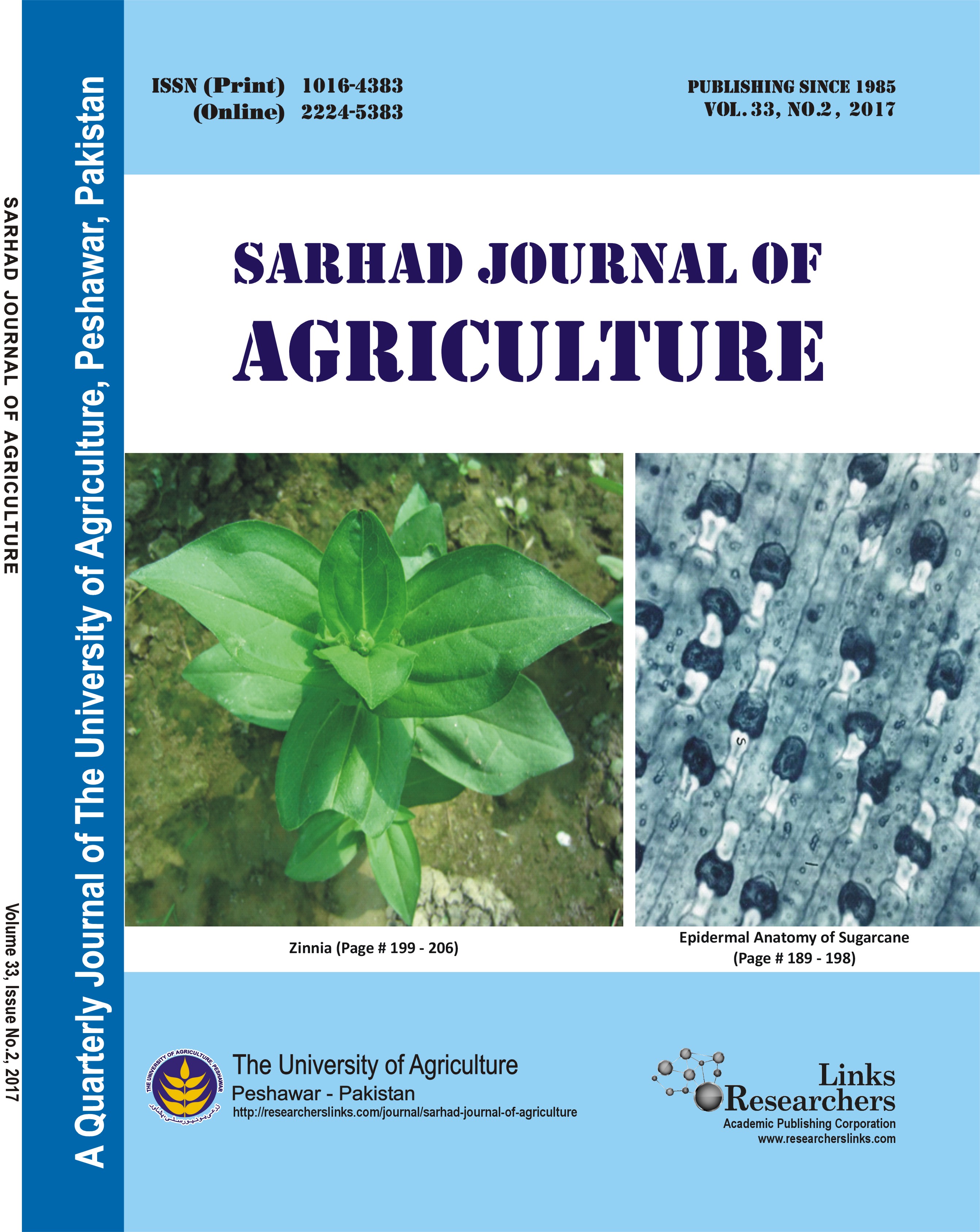Integration of Compost and Salicylic Acid–Micronutrients Consortia with Conventional Fertilizers to Alleviate Heat Stress on Nutrient Use Efficiency, Yield and Quality of Cotton
Integration of Compost and Salicylic Acid–Micronutrients Consortia with Conventional Fertilizers to Alleviate Heat Stress on Nutrient Use Efficiency, Yield and Quality of Cotton
Muti Ul Hannan1, Wazir Ahmed1, Muhammad Naeem Akhtar2*, Muhammad Baqir Hussain1 and Khuram Mubeen1
ABSTRACT
Gradual climate changes has delayed wheat harvesting and monsoon arrival in Pakistan and thus, cotton sowing in Pakistan particularly in Southern Punjab cannot be completed in time. Late sown cotton faces problem of heat stress at reproductive growth stages which results in significant reduction of yield with poor fiber quality. Additionally, soil health of Pakistani soils is very poor due to low soil organic matter, non-judicial use of fertilizers and high cropping intensity with mono-cropping pattern. The integrated and judicial use of organic and synthetic fertilizers boosts the soil and plant health and mitigates the deteriorative effects of heat stress on plants. Based on past studies, the objective of the study was to integrate pre-tested compost, SA, Zn-Fe-B consortia and foliar K with conventional fertilizers for ameliorating detrimental effects of heat stress on morphological and fiber characteristics of cotton. During study, salicylic acid based Fe, Zn, B consortia (S-N consortia), foliar potassium (K) and compost were used in different combinations along with conventionally used fertilizers. Nutrient Results reveal that integrated use of compost and S-N consortia improved yield attributes particularly fruit set percentage, flower to fruit conversion percentage, square boll size and weight, opening of square bolls and seed-cotton yield compared to conventional approach. Compare to farmer practice, foliar K application showed a significant increase in fiber quality parameters such as fiber length, fiber strength, MIC, micronaire and ginning out turn (GOT). Results advocate compost, micronutrients and K essential element of cotton production whenever cotton is under heat stress.
To share on other social networks, click on any share button. What are these?







